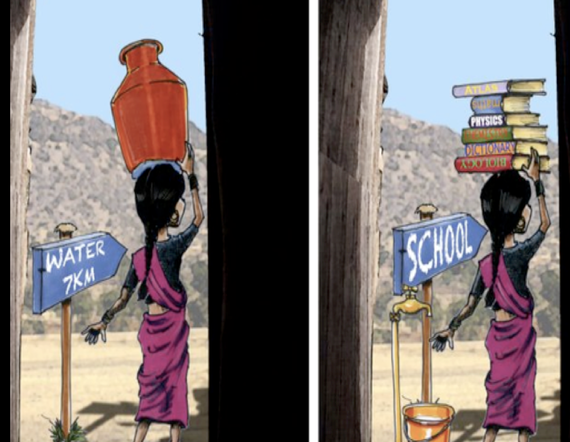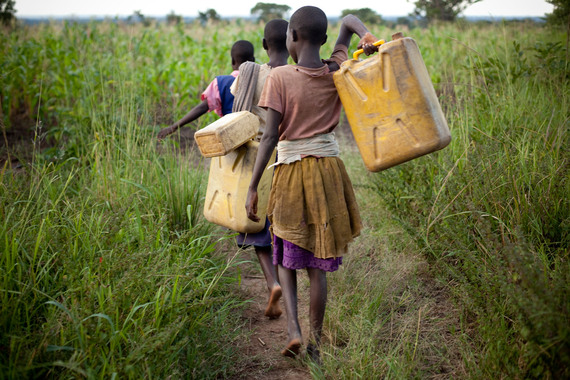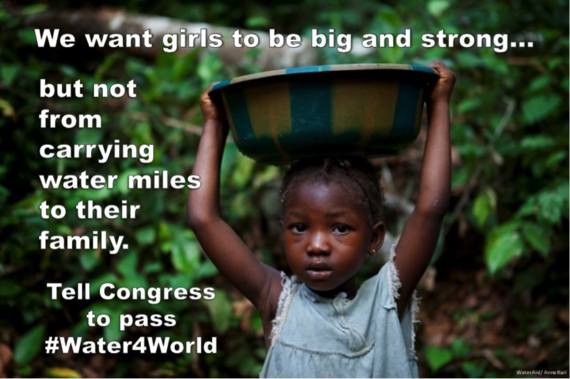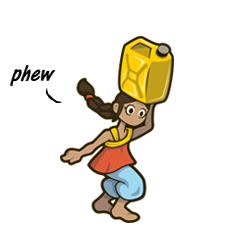Quick, avoid the peacock! Watch out! Throw the boomerang! Grab that mango! Because Maya's community's water pump has broken down, she is forced to withdraw from school to fetch water for her family. But, with your help, "Phew," Maya has filled up her water bucket and is back in school.
These are just a few of the components of the video game "Get Water." The free, downloadable game is fun and requires quick reactions and dexterity, so much so that I've only reached the first several levels. But it also has a larger purpose -- to educate the player (usually subtly) of the direct connection between access to clean water and the ability for girls to get an education.
As UNICEF notes, "Safe water and adequate sanitation are as important to quality education as pencils, books and teachers. Safe water and adequate sanitation are crucial for girls to take their rightful place in the classroom. Without these basic necessities, girls will continue to be absent."
As the development community knows, the burden of having to fetch water falls most heavily on girls, often requiring them to walk many kilometers multiple times a day to the nearest source of clean water. UNICEF also points out that "Surveys from 45 developing countries show that in almost two-thirds of households without a drinking water source on the premises, it is women and girls who collect water. In the 12 percent of households where children collect water, girls are twice as likely as boys to be responsible."
The Water Project notes that "When students are freed from gathering water, they return to class. With proper and safe latrines, girls stay in school through their teenage years." And Water.org cites startling statistics: "Women spend 200 million hours a day collecting water" and "About half of all girls worldwide attend schools without toilets."
A 2013 World Bank study in Ghana quantified the impact of having to fetch water on girls education, finding that halving water fetching time increases girls' school attendance by 2.4 percentage points on average, with stronger impacts (3.5 percentage points) in rural areas. Hence, access to clean water addresses both the second MDG (universal access to education) as well as the third MDG (achieving gender equality). 
For these reasons, we at the Global Campaign for Education-US, have argued that in the post-2015 education agenda, a quality education for all will only be achieved if boys and girls have access to schools with adequate and separate toilets and hygiene facilities.
The UN's Open Working Group that is deliberating on the post-2015 Sustainable Development Goals has drafted an initial "Outcome Document," in which Goal 4 seeks inclusive and equitable quality and Goal 6, ensuring access to clean water and sanitation. In its Progress Report, the Open Working Group noted the connection between water and education: "Water is at the core of sustainable development. Water and sanitation are central to the achievement of many development goals, including agriculture, health and education."
What can individuals do to help?
Many of the GCE-US Coalition members are working to achieve universal access to a quality education by ensuring access to clean water. They need help from the public. Interested in a particular country? Check out where they work.
The Voss Foundation is committed to bringing clean water to communities in Sub-Saharan Africa. World Vision has the Zambia Project. El Porvenir has been helping to dig wells in Central America for decades using community engagement and renewable power for sustainability.
Look into the Water For the World Act, which is having a campaign the week of August 18. The theme for Tuesday, August 19 focuses on girls.
Whatever you do, find a way to dive in because water is vitally key to Education for All.
Oh, and what's up with Maya in the "Get Water" video game? I understand she's been able to stay in school long enough to become an engineer and fix the water pump in her community!
